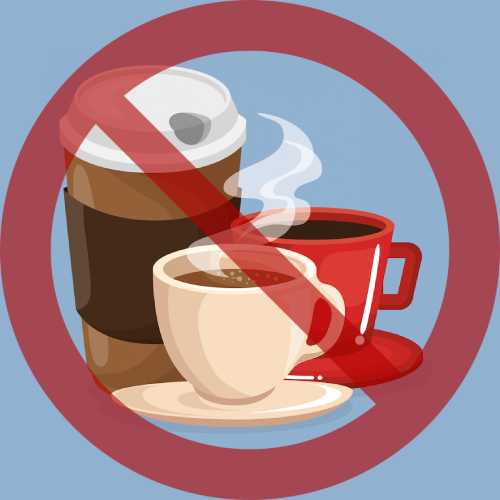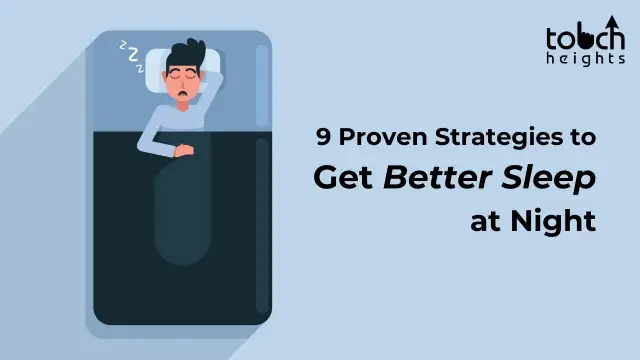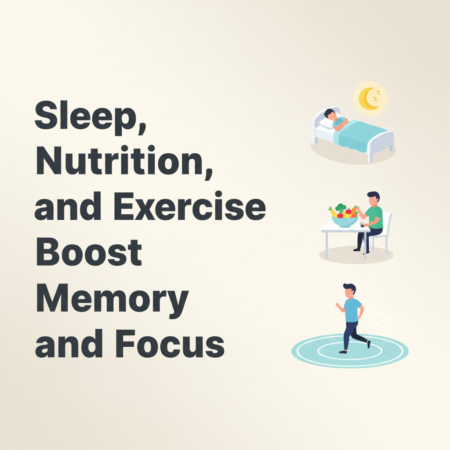Sleep deprivation may leave you physically and emotionally exhausted. Sleep is essential for living a healthy, happy life, yet most of us struggle with it sometimes.
Fortunately, restful sleep may be within your grasp! You may be able to enhance both the quality and quantity of your sleep with a few easy tweaks. Here are the 9 proven ways in which you can get better sleep at night.
Maintain a consistent sleep routine.

No more than eight hours should be allotted for sleep. Every night, a healthy adult needs to slumber for at least seven hours. Most individuals don’t need any more sleep than eight hours to feel rested.
Put yourself to bed and rise at the same time every day, including on the weekends. Your body’s sleep-wake cycle becomes stronger with consistency.
After 20 minutes of lying-in bed, if you haven’t slept off, get out of bed and engage in some relaxing activities. Watch a movie or play some soothing music. You should return to bed when you are worn out. Repeat as necessary, but stick to the same bedtime and wake-up times.
Keep Track of your meals

Never go to bed hungry or full. Whenever possible, avoid eating anything substantial or heavy right before bed. Sleep loss can result from discomfort.
Caffeine, alcohol, and nicotine should all be used responsibly. Long-lasting stimulants like caffeine and nicotine may prevent you from falling asleep. Additionally, drinking may initially make you weary but later on, in the night, it may interfere with your sleep.
Make your surroundings relaxing.

Maintain a chilly, silent, and dark atmosphere in your room. Evening light exposure may make it more difficult to fall asleep. Before going to bed, avoid utilizing light-emitting screens for a lengthy amount of time. To create a cozy environment, think about using earplugs, a fan, room-darkening drapes, or other devices.
You could sleep better if you relax before bedtime by taking a bath or using other relaxation techniques.
Limit your midday naps.
Long daytime naps might interfere with night-time sleep. Avoid taking naps in the afternoon and keep naps to no more than an hour.
If you work nights, you might need to take a nap in the afternoon before work to make up for the time you spent awake.
Add physical training to your daily routine.

You could have better sleep if you exercise frequently. However, avoid exercising too close tonight. Daily time spent outside may also be advantageous.
Control your fears.

Before going to bed, make an effort to deal with any worries or fears. Write down what’s on your mind and store it for tomorrow.
Stress reduction could be advantageous. Start with the basics, such as organizing yourself, setting priorities, and allocating responsibilities. Anxiety can also be reduced by meditation.
Cut back on the light and noises.
These two environmental factors may have an impact on both the quantity and quality of your sleep. In the dark, your brain releases melatonin to aid in relaxation and sleep. As a result, it’s crucial to limit your light exposure before night.
You can have trouble falling asleep even if your computer, TV, or other gadgets’ lights are on. Avoid using these gadgets in your bedroom, and instead, use blackout curtains or an eye mask to create a dark environment. Additionally, noise might make it difficult for you to sleep. To drown out loud noises, try using a fan or a noise maker.
Get Comfortable.

Adults sleep for approximately a third of their lives, so it makes sense to spend money on cozy, relaxing bedding. Try decreasing your thermostat by a few degrees before going to bed. When you sleep, your core temperature drops, and keeping your room cool will encourage this natural cooling.
Avoid caffeine between six and seven hours before bed.

Caffeine works as a stimulant to keep you from dozing off. Caffeine may persist in your system for nearly half a day, so it should be avoided in the afternoons and evenings—or, if you work shifts, in the six to seven hours before bedtime. This includes energy drinks, soda, coffee, green tea, and other caffeinated beverages.
Additionally, keep an eye out for hidden sources of caffeine as chocolates and other sweet snacks occasionally result in an energy boost and can affect how well you sleep at night. We advise decaf drinks and light, healthful meals in the second half of your day as you get ready for bed to be safe.
Bottom line:
Sleep is critical to your health. Insufficient sleep was associated with an elevated incidence of obesity by 89% in children and 55% in adults in one major study. Other research has found that sleeping for fewer than 7-8 hours each night increases your chances of acquiring heart disease and type 2 diabetes.







